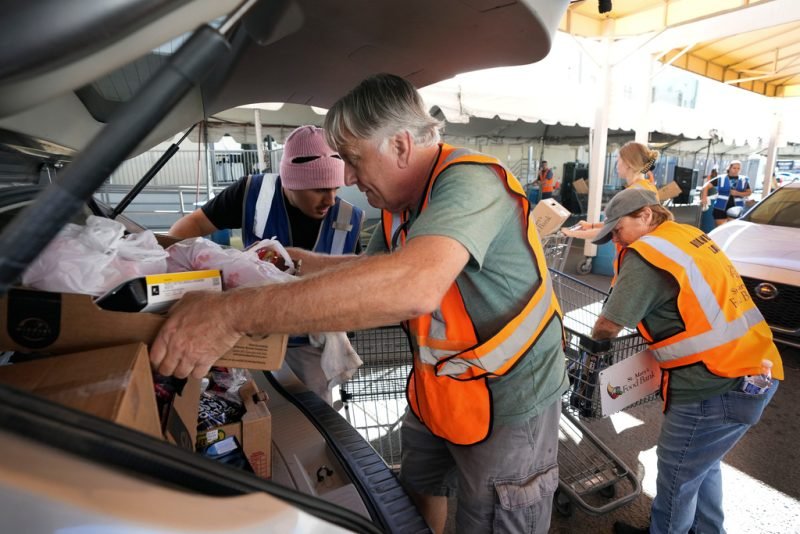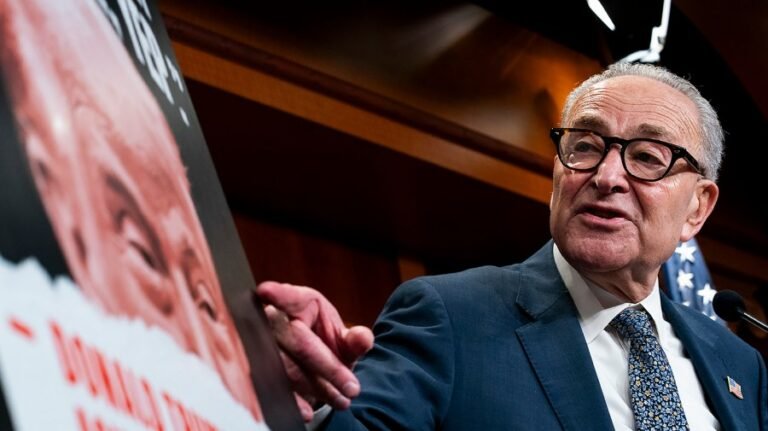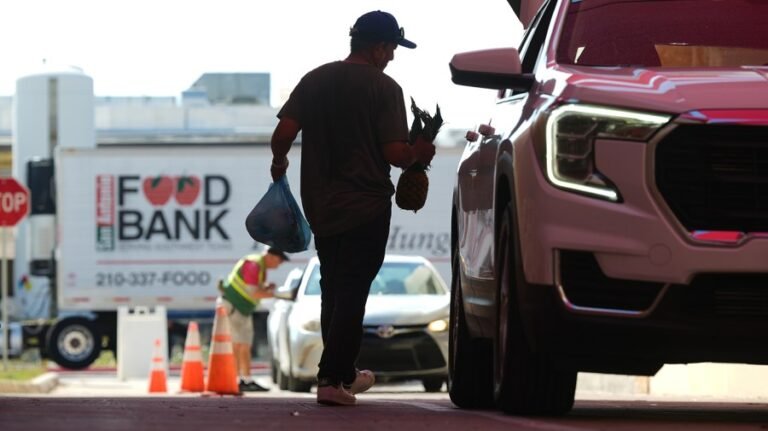
(NEXSTAR) – Unless something changes dramatically in the next couple days, more than 40 million Americans are preparing to have federal food assistance cut off starting Saturday.
The Supplemental Nutrition Assistance Program, or SNAP, will not be funded in November if the government shutdown continues, the United States Department of Agriculture has warned. The program provides food assistance to about 1 in 8 people in the U.S.
Low-income and no-income families rely on the monthly benefits, which typically reload automatically on an EBT card, to buy groceries. Each household’s allotment depends on income and family size. The average is $187 per person per month.
While some states, like Virginia, are planning to use emergency funds to reload EBT cards, far more states are directing funds to food banks or telling residents to seek help from charities.
How to find food assistance when SNAP funds expire
Feeding America has a directory of local food banks, food pantries and meal programs on its website. When you type in your ZIP code, it will direct you to an organization near you and give more details on food pickup locations and times.
You may also want to check your state’s SNAP page for more information. Since each state is handling the shutdown differently, there may be more funding or resources added near you.
Will there be enough donations to meet demand?
Even before SNAP benefits dried up, food banks and food pantries were already seeing an increase in need.
Central Christian Church’s food pantry in downtown Indianapolis scrambled Saturday to accommodate around twice as many people as it normally serves in a day.
“There’s an increased demand. And we know it’s been happening really since the economy has downturned,” volunteer Beth White said, adding that with an interruption in funding for SNAP, “it’s going to continue to get worse for folks.”
Several states, including California, Connecticut, Minnesota, New Hampshire, New Mexico, New York, Rhode Island and West Virginia, are funneling millions toward food banks and nonprofits for November, but there are concerns it still won’t be enough.
“The amount of food that SNAP provides has been estimated to be nine times larger than the entire food bank network combined, so to think that we at food banks alone can be the sole resource to pick up this slack for government’s failure in this moment, it’s very unreasonable,” said George Matysik, executive director of Philadelphia food bank Share Food Program, in an interview with USA Today.
Some community organizers are warning of long lines and low supplies. Matysik said he’s worried their stock will run out entirely.
“I’ve been here seven years,” he said. “I’ve never seen our warehouses as empty as they are right now.”
“When you take SNAP away, the implications are cataclysmic,” Feeding America CEO Claire Babineaux-Fontenot said. “I assume people are assuming that somebody’s going to stop it before it gets too bad. Well, it’s already too bad. And it’s getting worse.”
The Associated Press contributed to this report.


